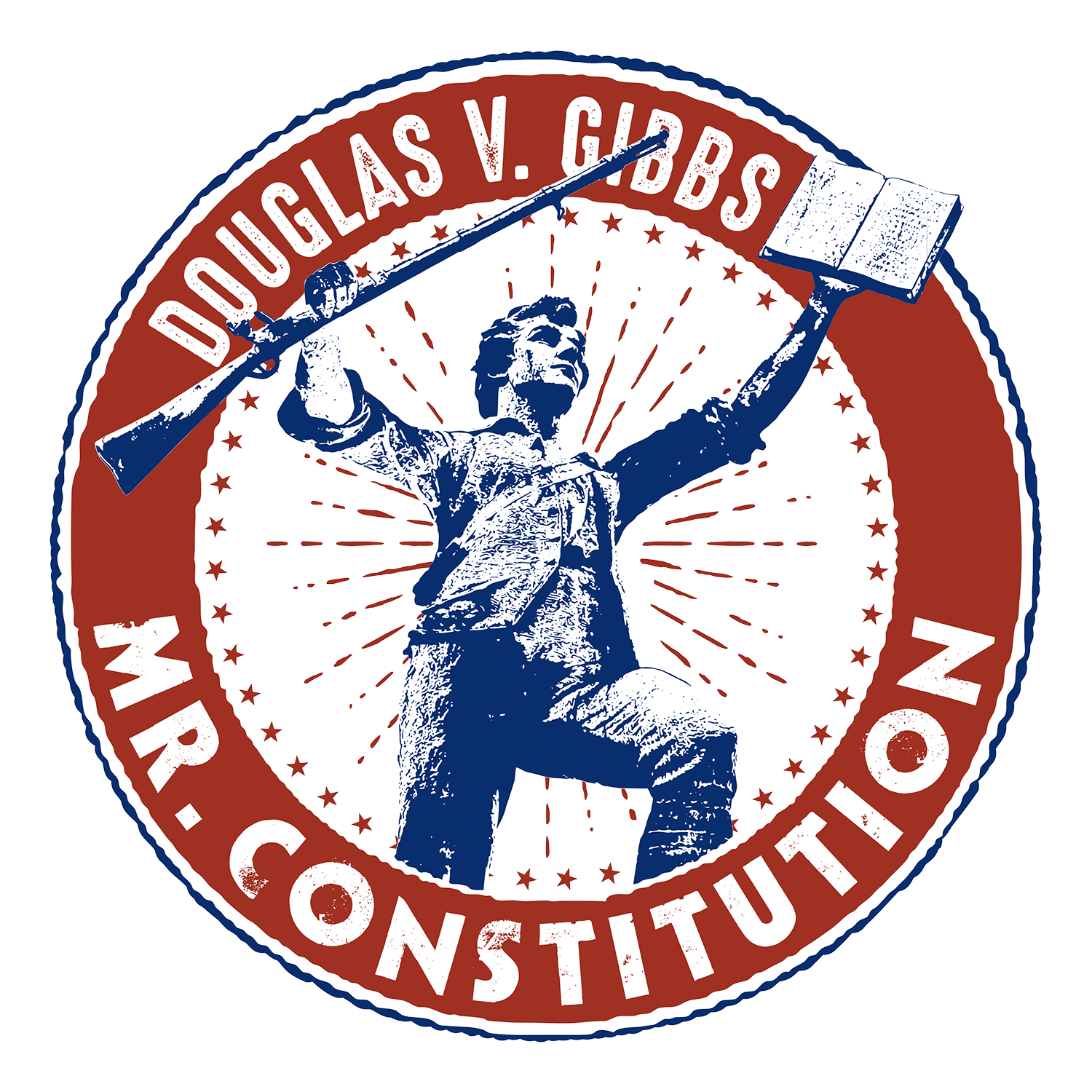By Douglas V. Gibbs
The conventional wisdom in the general public and political class of our country when it comes to citizenship of the United States is that if you are born on American Soil you are automatically guaranteed to be a citizen, a native citizen, and natural born citizen, and untouchable by anyone who wishes to say otherwise. The proponents of the concept of citizenship by birth will tell you that it is supported by the Citizenship Clause of the Fourteenth Amendment and the 1898 United States v. Wong Kim Ark case which reached the United States Supreme Court. The term that has developed regarding folks born inside U.S. borders who receive automatic citizenship is “Birthright Citizenship.” However, despite all of the arguments claiming that Birthright Citizenship is a constitutional and legal concept, it is not supported by the United States Constitution, any law on the books, nor any court ruling.
Citizenship was an important concept to the Founding Fathers. They established for Congress the requirement to establish uniform rules for naturalization in Article I, Section 8, and a year after the First Congress took office President Washington signed the Immigration and Naturalization Act of 1790. Then, when it came to the President of the United States, for fear of allowing someone who didn’t have absolute allegiance to America to become President and Commander in Chief, they established that the President must be a Natural Born Citizen – a requirement so important to them that during the Constitutional Convention there was no debate over the matter. The vote was unanimous.
The authors of the Citizenship Clause in the Fourteenth Amendment were aware of the need to ensure loyalty to the United States if someone was to be a citizen of the country. While the immediate need of the clause was to ensure that the citizenship of the children of the newly emancipated slaves was not questioned, Senators Howard and Trumbull also realized that the clause would be used as the foundation of the definition of citizenship since it had not been laid out in the Constitution in previous articles.
The Citizenship Clause reads: “All persons born or naturalized in the United States, and subject to the jurisdiction thereof, are citizens of the United States and of the State wherein they reside.”
The word “and” connects the first part of the clause to the second part which reads: “subject to the jurisdiction thereof.” The usage of the word “and” between the two parts means that both parts of the clause are a requirement. While modern legal experts will claim that “subject to the jurisdiction thereof” means that the person being born and living within the borders of our country and being subject to the laws satisfies the second requirement, in congressional testimony both Howard and Trumbull testified that what they meant was “full allegiance.” They both also explained in congressional testimony regarding their Fourteenth Amendment Citizenship Clause that exempt from citizenship would be Indians not taxed, as well as the children of foreigners, aliens, diplomats, ambassadors and other foreign consuls and ministers; echoing the language of the Civil Rights Act of 1866 which went into law two years prior to the ratification of the Fourteenth Amendment. The Civil Rights Act of 1866, specifically Section 1, declares that “all persons born in the United States and not subject to any foreign power” are citizens.
Since 1866 there have been no laws passed and signed into law that establishes a person born on U.S. soil is automatically a citizen.
The only court case that the proponents of Birthright Citizenship uses to support their argument is the 1898 case of The United States v. Wong Kim Ark. The case involved a person born on American soil to two Chinese Nationals who, since they were unable to become citizens of the United States due to laws preventing them from doing so, applied and were approved for Permanent Residency. When they were deported, Wong Kim Ark refused the deportation order along with his parents because, he claimed, he was a citizen because he was born on American soil. The United States Supreme Court ruled in his favor, but not just because he was born on American soil, but because the second part of the Citizenship Clause from the Fourteenth Amendment (“and subject to the jurisdiction thereof”) had been satisfied by their action of becoming permanent residents prior to his birth.
No other legal case has specifically tackled birthright citizenship and reached the United States Supreme Court, so the ruling in 1898 serves as precedent – which means according to the ruling being born in America is not sufficient for citizenship; the second part of the Citizenship Clause (“subject to the jurisdiction thereof”) must be satisfied as well.
The job of the President of the United States is to execute the laws of the United States. By proclaiming that Birthright Citizenship is an unconstitutional action and that the children of illegal aliens are not citizens of the United States because when they were born the illegal status of their parents fails to satisfy the second part of the Citizenship Clause, he is accurate. As provided in the Civil Rights Act of 1866, since they were born to parents subject to a foreign power, the children are not citizens. There is no law that argues otherwise, nor is there a court case that can be used to state the President is in the wrong. Unfortunately, the law means nothing to the activist judges who are attacking Trump’s constitutional actions regarding Birthright Citizenship.
A Separation of Powers also allows the President to defy the courts, for not only do they not have any constitutional authorities to establish legislation nor micro-manage the actions of the President of the United States as they pertain to his job of executing the laws of the United States, but they also have no enforcement arm to force the President to abide by their rulings or judicial opinions. We also have historical precedent of Presidents refusing to abide by the opinions of federal judges. President Thomas Jefferson (which can be argued as being someone who understood the original intent of the United States Constitution) defied the courts at least twice. The first time he refused to spend federal funding established by John Adams that he believed to be excessive, corrupt and wasteful even though the courts claimed he had to spend the money due to the Appropriations Clause. This would be the first incident in history in which a President of the United States exercised his Presidential Power of Impoundment (he later did it again when he failed to use money appropriated for building naval vessels when he deemed them unnecessary after the acquisition of the Louisiana Purchase). Second, Jefferson refused to deliver a judicial commission to William Marbury after Mr. Marbury won his case against Secretary of State James Madison (Marbury v. Madison of 1803). Andrew Jackson, the father of the Democratic Party, also defied the courts when they told him he could not carry out existing law that allowed him to relocate native populations from Georgia to Oklahoma that came to be known as “The Trail of Tears.” His quote? “John Marshall has made his decision, now let’s see him enforce it.”
The courts have no legal authority to establish the definition of Birthright Citizenship for they have no legislative powers. All legislative powers are vested in Congress, as per Article I, Section 1 of the Constitution. The Fourteenth Amendment does not support the definition of Birthright Citizenship and the writers of the Citizenship Clause said so clearly in congressional testimony. No law supports the definition of Birthright Citizenship. No federal Supreme Court ruling supports the definition of Birthright Citizenship. And, no constitutional provision supports the courts being able to dictate to President Trump how he may carry out immigration laws or if he may use the Civil Rights Act of 1866 as the basis for his definition of Birthright Citizenship. The unconstitutional and unlawful arguments against President Trump regarding Birthright Citizenship are based on an unconstitutional narrative, and is being used in an illegal manner. The judges acting in an activist manner, rather than apply the laws to the cases they hear as called for by the Constitution, should be impeached for their unconstitutional rulings and motives.
Trump is correct, and the courts are wrong.
Period.
— Political Pistachio Conservative News and Commentary




Doug, how would trumps first 3 children be natural born if their mother didn’t become a US citizen until after they were born? Norm
They are not natural born citizens, so they are not eligible for the presidency.
Because their father is/was a natural born citizen.
So his children are not US Citizens, including Baron?
That’s not what I said. His first two sons are citizens, but they are not natural born citizens, therefore they are not eligible for the presidency. Baron, however, is both a citizen, and a natural born citizen and would be eligible for the presidency.
Ok Baron is eligible to become president someday. I’m not understanding the difference between citizen & natural born citizen then. So the question for me then is: What is meant by citizen? What is meant by natural born citizen?
These are not my words but the news today:
Would love to hear your thoughts.
The Trump administration argues the citizenship clause of the 14th Amendment does not apply to people whose parents are in the country illegally or temporarily — citing a clause that says citizenship is granted to those who are “subject to the jurisdiction” of the United States. Those parents do not necessarily have “allegiance” to the country, the government argues, so they therefore aren’t “subject to the jurisdiction.”
The 9th Circuit disagreed. It wrote Wednesday that a plain reading of the 14th Amendment suggests that citizenship was meant to be granted to anybody who is “subject to the laws and authority of the United States.”
A panel of judges on the U.S. Court of Appeals for the 9th Circuit wrote that Mr. Trump’s order is “invalid because it contradicts the plain language of the Fourteenth Amendment’s grant of citizenship to ‘all persons born in the United States and subject to the jurisdiction thereof.'”
The plain language as they interpret it based on the definitions used in modern times without taking into account any other definitions, nor the congressional testimony by those who wrote the clause when their committee presented the clause to Congress for approval. The “plain language” argument is a way of saying that the context nor the original intent matter…only their interpretation.